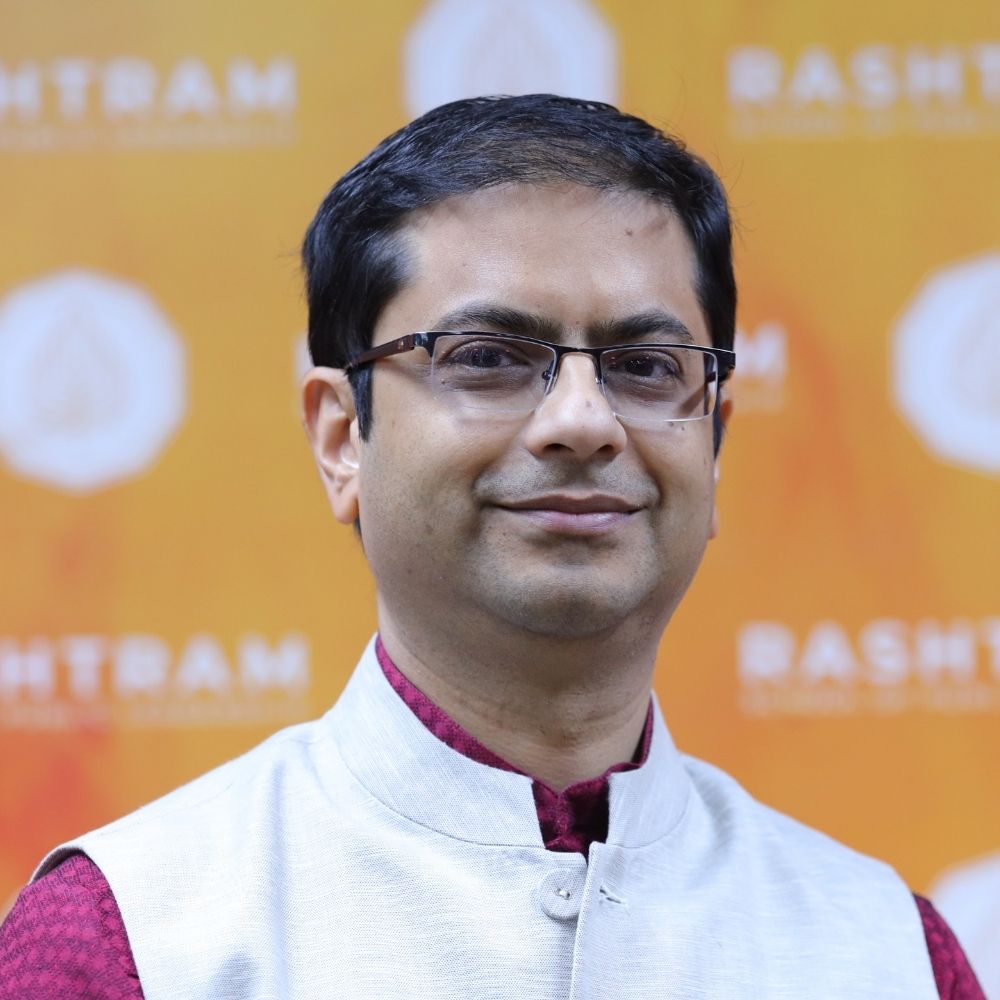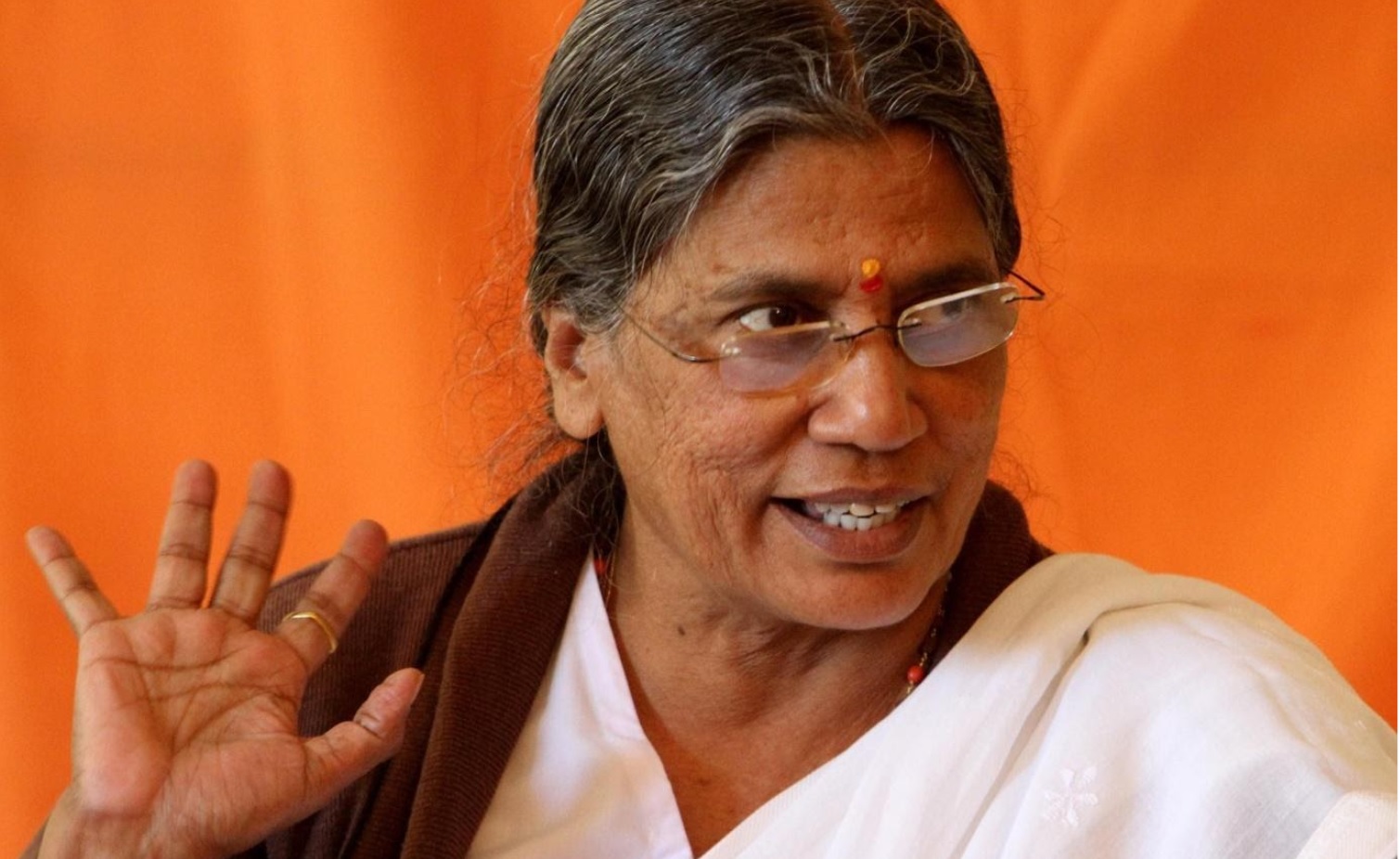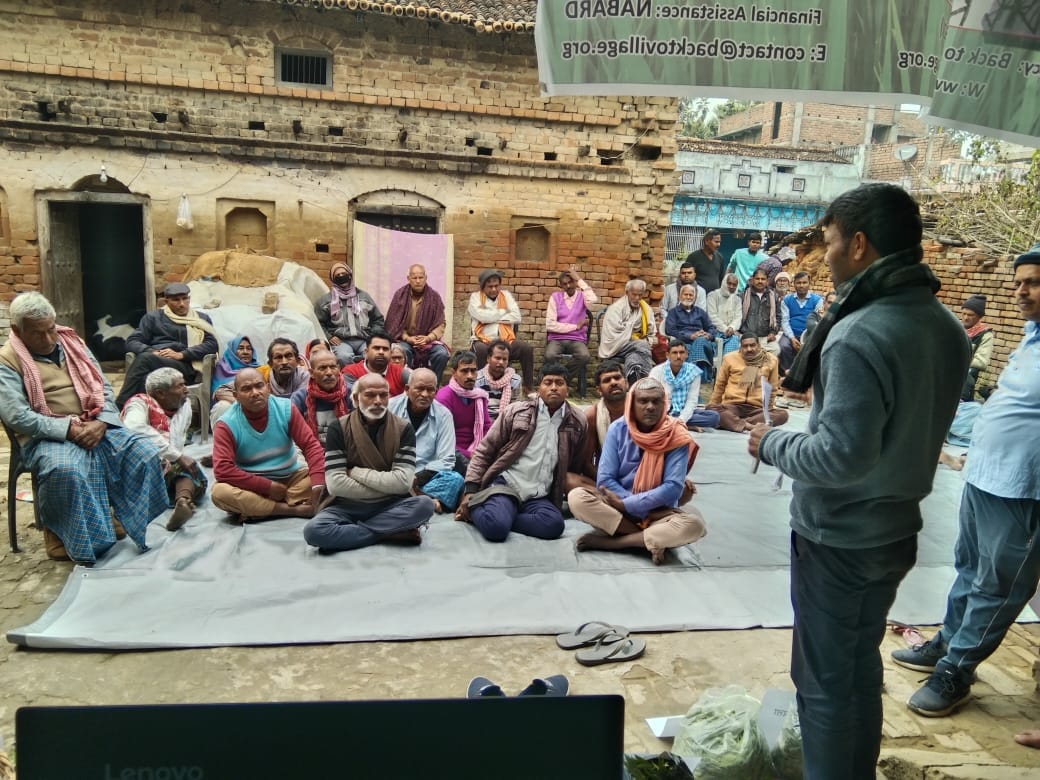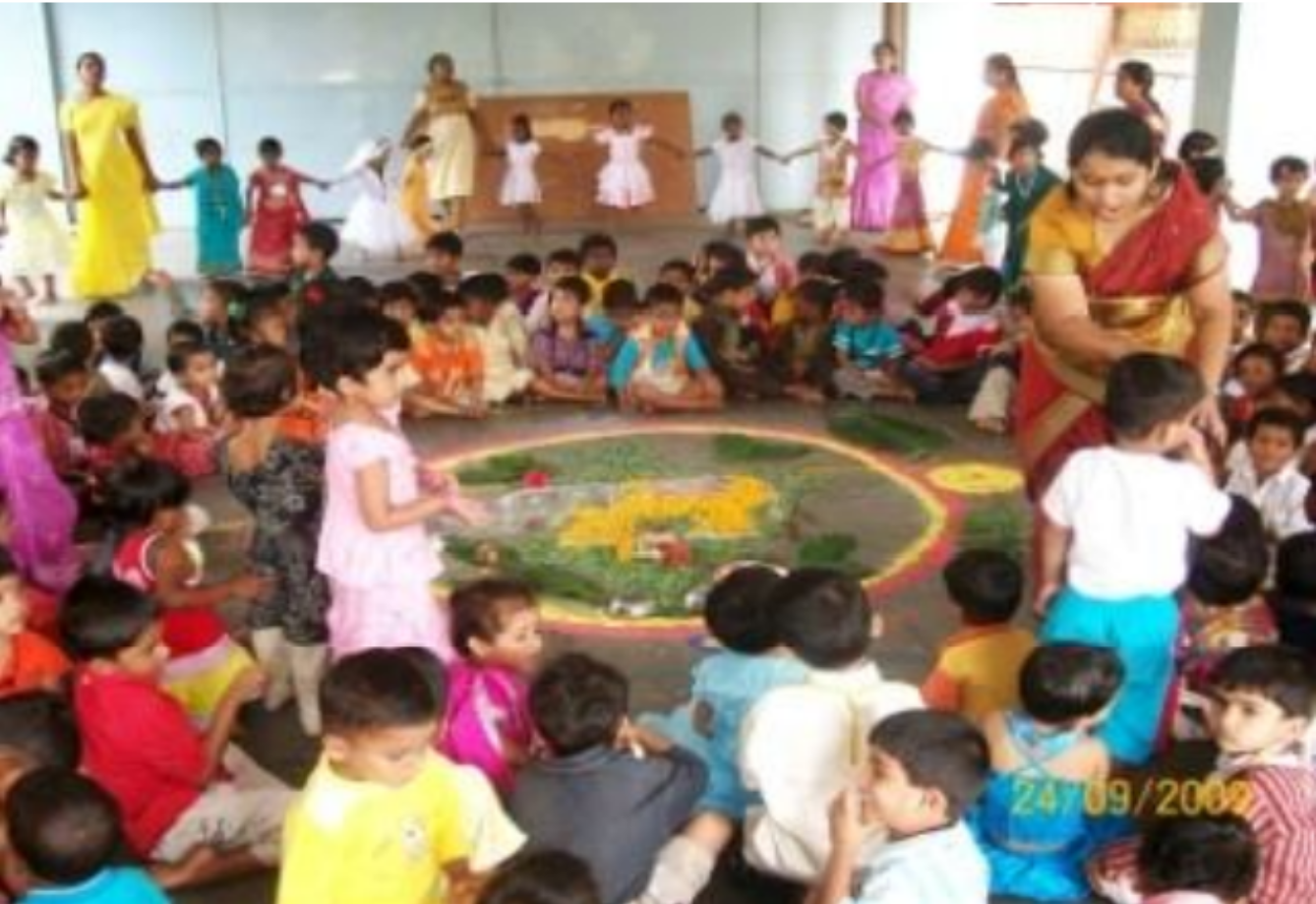The legendary American Football coach Vince Lombardi once said “Leaders aren’t born, they are made. And they are made just like anything else, through hard work”.
‘Rashtram School of Public Leadership’ has set out to do this very thing – to work hard and create leaders that will lead the society. It was founded in 2019 by the ‘Vision India Foundation’ with the aim of building leaders who would be adept in ancient Indian wisdom and traditional practices and who could take up the world’s contemporary problems. We spoke to the Vice President of the Rashtram school, Shobhit Mathur, on the initiative’s vision for the future.
The Colonial Hangover
According to Mathur, India (Bharat) has a rich culture and a history of strong leaders; however, India still looks externally for solutions to its social and political problems. This is because India’s government is still modeled after the British Colonial Government. The British empire ruled over a majority of India from the mid-1800s to 1947 and in this time period government institutions and policies were modeled after colonial interests of the British. These oppressive structures and the ideas on which they were built were never meant for a country as large and populous as India. But in spite of many decades of Independence not too much has changed. India is still using foreign solutions, irrespective of whether they are applicable, to the Indian contexts and if they are solving any present day problems in India. This pervasive issue is what Rashtram is attempting to solve, Mathur told us.
Rashtram is building leaders to use India’s own wisdom to solve the country’s own problems. By making people aware of the problems of the colonial baggage and its ideologies, and by instilling time-tested ancient values, Rashtram’s students are envisioned to be able to bring tangible changes in India. By helping build a new generation who is fully on board with this idea, Rashtram hopes to bring political, academic, and social change within the current volatile political and cultural landscape of the country. In fact, the name Rashtram comes from the word “rashtra”, which means “nation” in Sanskrit. As Shobhit Mathur put it “it is important that the name and terms used in the discourse are in accordance with our purpose”. Through creating and carefully nurturing leaders for the future, Rashtram looks to create not one leader but a whole ecosystem of next generation leaders for India. Rashtram is not a school focused on skill building for individual growth, but rather, it is a school built around the ideas of growing as a country through these leaders. It is an endeavor to help India thrive and put it on the pedestal of prosperity.
While there are many global leadership schools, most tend to focus on business entrepreneurship rather than social change. This is what makes Rashtram different from others. In addition to good entrepreneurs, which any country definitely needs, Rashtram focuses on a less nourished tier of education in politics of social change. It is bringing the like-minded academic, social, and political leaders together, amplifying their effects through collaboration. Bringing these groups together and having them interact with each other is seen to bring out true leadership because it brings awareness to the problems of the nation and a wish to solve them.
Man behind the mission
The responsibility of ensuring that Rashtram reaches the end goal has been assigned to Shobhit Mathur, the man who is dedicated to the success of this project full time. As mentioned previously, Shobhit is the co-founder and the current vice president of the Rashtram School of Public Leadership. He has been a long time volunteer for Youth for Sewa, a youth organization enabling individuals to volunteer for societal change. He started the organization’s Hyderabad chapter.
Shobhit Mathur is a graduate of the Indian Institute of Technology – Bombay, one of the most prestigious colleges in all of India. After that he completed graduate school at the University of Washington at Seattle and worked for a few years in Amazon, based in the USA. But as time went on, he started yearning for something else. He felt a pull towards India and working in the United States did not allow him to contribute to his motherland. He strongly wanted to do something for India. After drawing inspiration from a book named Fortune at the Bottom of Pyramid by C.K Prahlad, he decided to move back to India and dedicate himself to Youth for Sewa. He is very experienced in the field of volunteering as he has led various Youth for Sewa projects. Today his journey for a better India and the world has led him to start this initiative of Rashtram School.
When Shobhit Mathur decided to move back to India and set up an organization to train future leaders, he told us he was criticized by many as he was thought of wasting his precious youth. He dedicated all his time, researching this field as not a lot of scholars have such in-depth knowledge about leadership. He laid down a foundation on his own and made his own team, a task that is harder than it appears. He tells us that teaming up the youth on this initiative was a challenging thing. It was hard to convince people to believe in such an idea that required long term commitment to see change. Yet he worked hard and assembled a really supportive team to get this organization working.
Harnessing the three ‘shaktis’ in creating leaders
He told us that Rashtram is based on three potentials within us, “jnana shakti” – the power of knowledge, “ichchaa shakti” – the power of will, and “kriya shakti” – the power of action. Harnessing ‘Jnana shakti’ or power of knowledge involves promoting academic leaders and research into the ancient Indian texts. The Indian knowledge system is rich and diverse. This makes India the potential source of countless ideas and practices which can lead to great innovations in every sphere of life. Harnessing ‘Ichchaa shakti’ involves putting the knowledge generated by the ideas into work in the society. Like the Rashtram website states “embedding nourishing ideas into the fabric of a nation is the real job of Politics.” If academia is the “WHAT” then politics is the “HOW”. Lastly, there is ‘kriya shakti’ which is harnessed through community leadership, which in simple terms is helping the implementation of the ideas grow and become successful among the people of the country. There can be wonderful ideas but if leaders are not aware, then these ideas are not of much value. Community leaders are especially important because they work with the people, they have to understand people and this type of knowledge does not come from sitting in a classroom, but rather through experience. These three shaktis are complementary to each other. They together provide a strong basis for the development of any society. If a society has very good leaders in every sphere, the society functions like a well oiled machine. These three shaktis define Rashtram’s vision and work of creating leaders from top to bottom to help India become a better nation. Importantly, this is done on the basis of Indic knowledge and thought.
Rashtram’s course in public leadership
Rashtram offers a two year program on political leadership. The unique part is that this is more like a gurukul model where the teacher or the mentor and the students or mentees build a family-like relationship. A typical day starts with Shavasana or meditation yoga. Meals provided are vegetarian and customized for each student based on the student’s prefered diet and hometown. The morning is spent in a classrooms followed by self reading in the afternoon. In the evening students spend time with a professional mentor. 30 percent of it is field work. It involves doing an apprenticeship, working under an experienced person, and the second project is to take the lead and do it on their own.
Through this course, students learn to understand themselves and their country. Human beings can perform better when they really know who they are and what they want to achieve Mathur tells us.
Decolonizing the Indian system
Rashtram’s perspective about India is that India still uses foreign solutions to its own domestic problems. Rashtram wants India to decolonize and bring its previous ideologies into limelight. Mathur identifies a plethora of areas that leadership in India still needs to fix. One example is the harmful standardization of foreign language within the government. From a very young age, Indians are taught through a foreign language, English. The process of interpreting knowledge and translating it from English to one’s mother tongue brings down the overall quality of education. Students who find it hard to grasp English are disincentivized to pursue higher education. This creates a perpetual cycle where people from lower socio-economic backgrounds are without a higher level of education, leading to lower incomes and thus leading to they further not sending their children to schools leading to lower levels of education from generation to generation. In addition, government documents and resources are often in English, which prevents the vast majority of individuals in need from accessing crucial welfare services. As India still holds on to its outdated values of English as the superior language, it will continue the cycle of undernourishment and holds back the potential of youth in poor, rural communities. Another example is the British governing system. Prior to colonial times, India held the power of governance to state legislators as they would know the individual needs of their citizens. Decentralized governance is especially important in India because high populations limit the effectiveness of federal policies; however, this policy was abandoned when India was ruled by the British. When the British ruled over India, it adopted a centralized government to rule over Indians rather than govern them. Even after the sun set on the British empire, India held on to these hypocritical styles of governance even when they did not suit the cultural, societal, and economic backgrounds of what India truly is: a diverse, populous nation brimming with intersecting subcultures.
While these are just two examples of India clinging to inapplicable Western policy implementations, Mathur argues that the biggest example of colonial hangover comes from India’s healthcare system. Currently, Indian healthcare grants universal coverage to all residents of India; unfortunately, there are quite a few out of pocket expenses, negating the intended effects of granting subsidized healthcare. The idea of universal healthcare in India goes against the cultural identity of Indians as Indian society has ingrained values to care for your old and elderly no matter the costs. As a result, universal healthcare has incurred unnecessary government costs and promoted inefficiency throughout hospitals as a result of government intervention. Unfortunately, the problems don’t stop there. In an effort to recoup hospital losses incurred through universal healthcare, the government has devalued and removed legitimacy from ancient, affordable, preventative medicine like ayurvedic and yogic practices. Even though government hospitals comprise 10 percent of the total hospitals in India, the delegitimization of time-tested, preventative therapeutics has broad reaching consequences as Indian citizens are less inclined to use ayurveda and yoga, reducing accessibility to these effective, affordable healthcare methods. These are just three examples of how India is regressing as a society through its blind and unhealthy attachment to colonial systems. Mathur tells us that “Rashtram’s values incentivize solutions that stop colonial hangover in its tracks.”
Rashtram’s efforts are already showing some fruits. Alumni from Rashtram school have started working in academia, government, think tanks etc.
Thousands of years of Indian experience is condensed into ancient Indic teachings. They have been time-tested to solve problems that have arisen in the past thousands of years. Rashtram realizes that this ancient dharmic knowledge has applications that can benefit Indians but also the whole of humanity. The Indian model of leadership has a lot to offer to the whole world. With this belief Rashtram is working to create this alternative paradigm of leadership.
(This article is based on the research and interview conducted by the three Indian-American high-schoolers as part of the Dharma Internship Program 2020. The authors acknowledge the valuable suggestions and help from their mentors and program coordinator)






